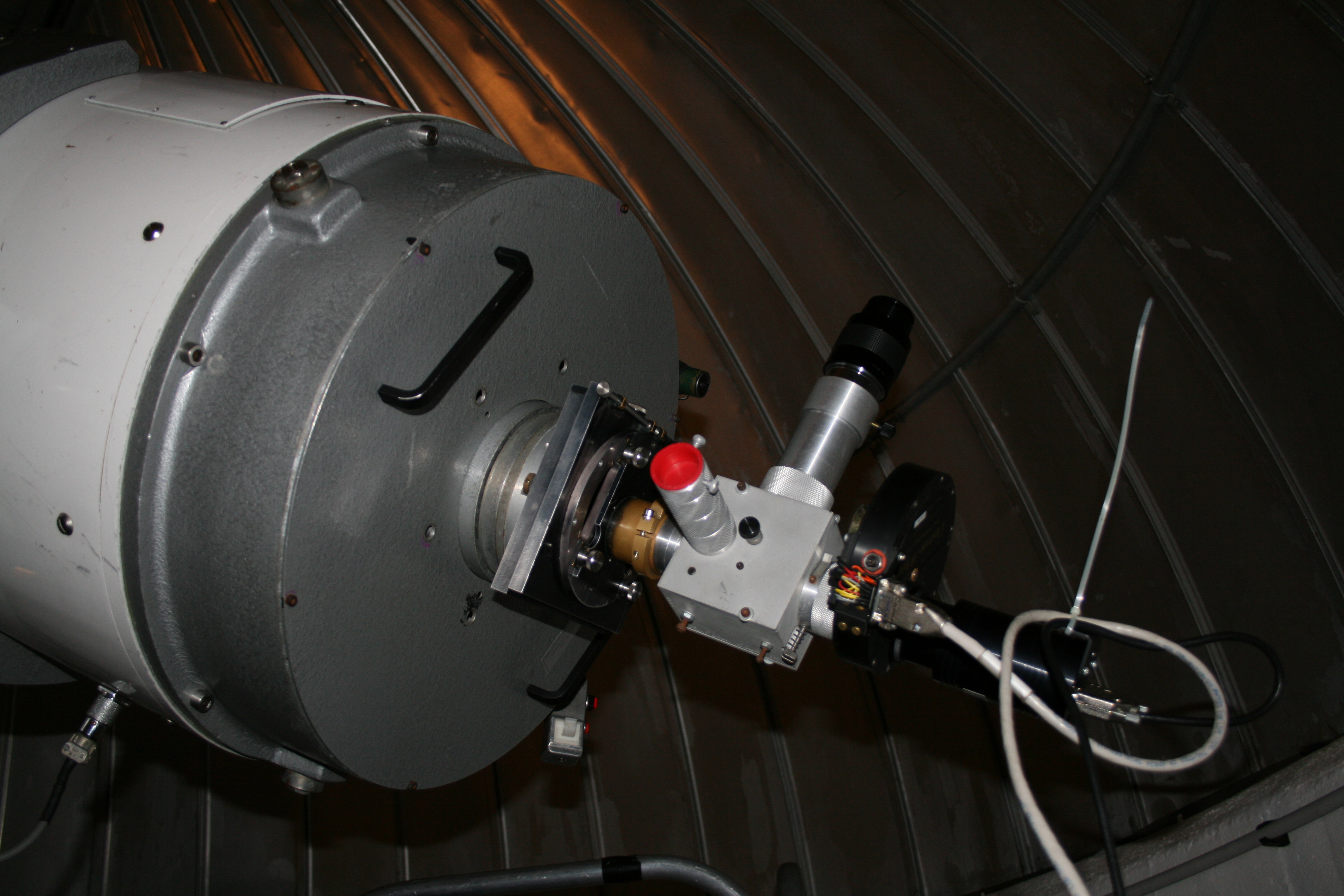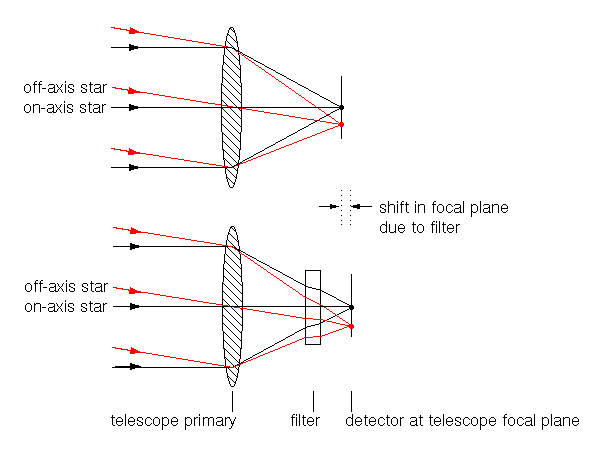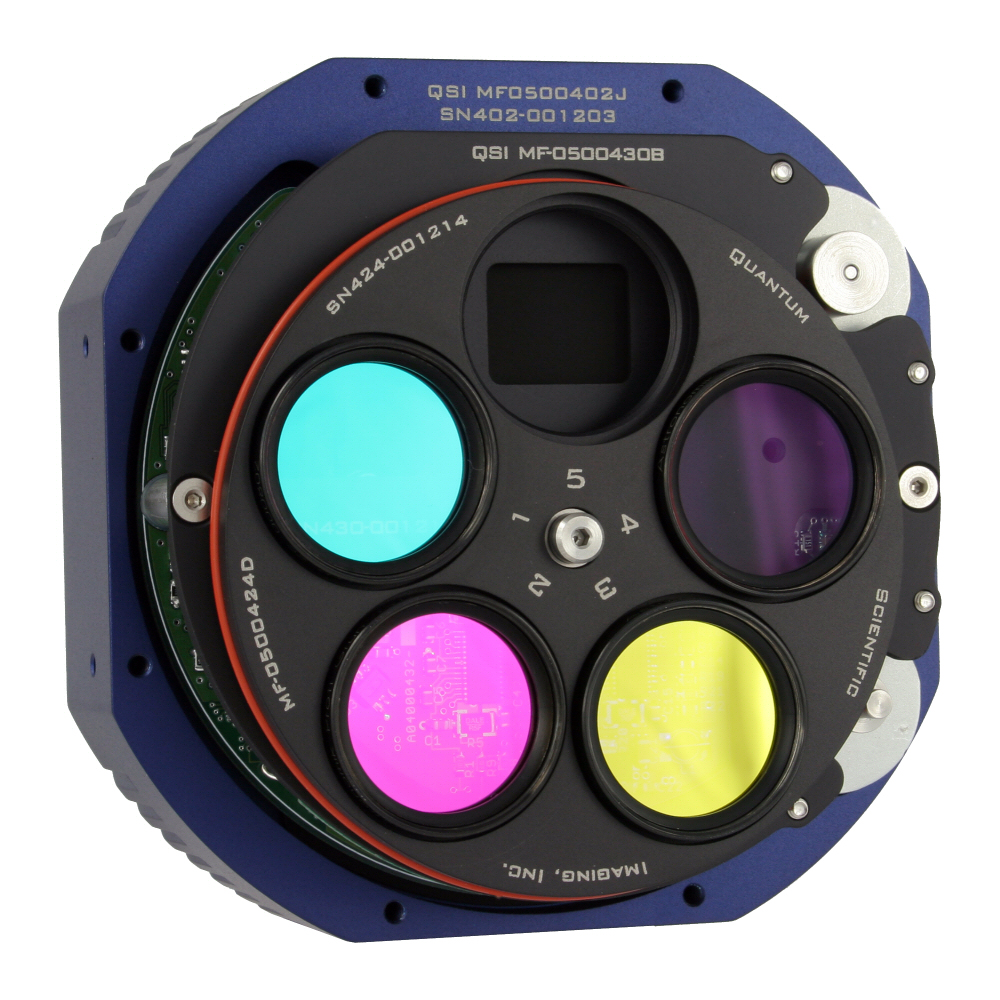Imagers are astronomical instruments that have the
capability of forming images of sources. The simplest form of imager
is when a multi-pixel detector, such as a CCD, is placed at the focal
plane of a telescope, in front of which is usually placed a filter in
a filter wheel, as shown in figure 69.
|
figure 69:
|
A photograph of the simple imager used by Sheffield astronomy
undergraduates at the Cassegrain focus of the 0.5 m Mons telescope on
Tenerife. From right-to-left are shown: the CCD detector, the filter
wheel, the "flipper" (a diagonal mirror housed in the aluminium box
which can be moved into the beam to direct the light upwards to the
eyepiece) and the bottom of the primary mirror cell.
|

Since the filter in a simple imager is in the converging beam from
the telescope, it causes the focal plane to move away from the
primary, as shown in figure 70. To compensate
for this when using a small telescope, the detector is usually moved
outwards. On large telescopes, however, which generally have multiple
instruments that require focusing, the position of the detector and
filter is usually fixed and the focal plane is moved back towards the
primary by moving the secondary mirror away from the
primary. Inserting filters of different thicknesses and/or refractive
indices causes the focal plane to move by different amounts. This can
be compensated for by adjusting the telescope focus each time, or
eliminated entirely by ensuring that the filters all have the same
optical thickness, i.e. the product of the thickness and
refractive index of each filter in the wheel is the same.
|
figure 70:
|
Left-top: A simple imager - parallel beams of light from an on- and
off-axis star are brought to focus by a telescope onto an array
detector placed at the focal plane. Left-bottom: the insertion of a
filter forces the telescope focal plane outwards. Right: the QSI 532
CCD camera with a 5-position filter wheel, as used on Sheffield's 10"
robotic telescope, ROSA.
|


©Vik Dhillon, 3rd November 2010


